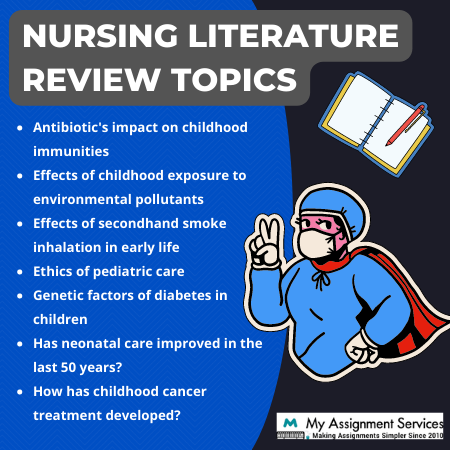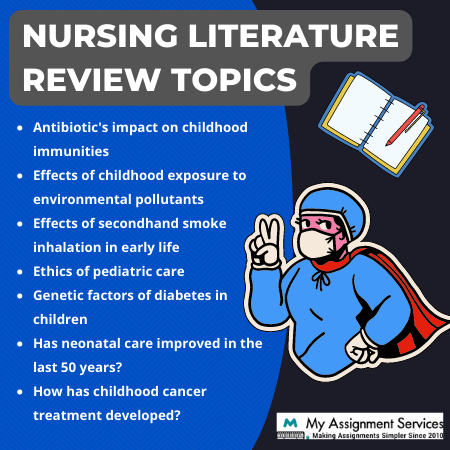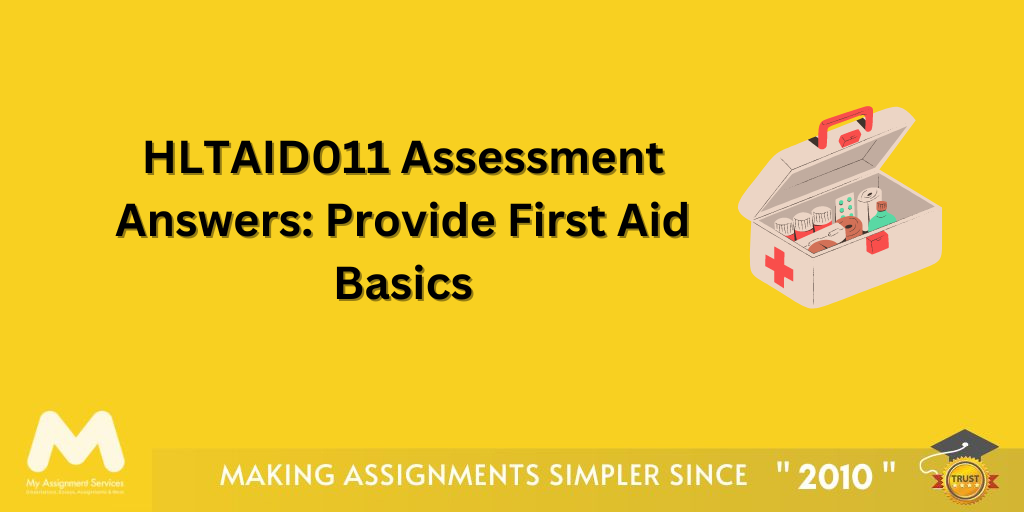
Nurses are the backbone of the healthcare industry; as much as hard work this profession requires, it is equally rewarding. Being a nurse, you get to experience the joy of seeing people get better and be a part of the complicated procedures it takes to save a life. There are no limits to the lessons that a nursing professional can teach you.
Did you know that the first-ever nursing school was established in 250 BC in India?
Pursuing a nursing course is the key to becoming an active and important part of the 'empaths', people who not only comprehend others' discomfort but might as well put their talents into helping others. Then again, a nursing course has its hurdles as well, and among them, the biggest one is writing a research paper.
If you clicked on this blog, then you might need some nursing research topics for university students? Don't worry; I got you; read forth to get insights on researching/writing a literature review and the topics you can use for researching.

What Are the Top 100 Nursing Research Topics for Students?
It is often useful for students to explore various topics when researching literature review topics. You may even brainstorm for the best-suited topic based on your learning. A literature review is an absolutely essential part of your degree and comprises a huge section of your final grade. You may need to pursue such a task once, so you might as well do it effectively. Here's a list of hundred topics that our nursing assignment help experts have compiled from various fields:
As reported by the Australian Bureau of Statistics, there are only 10 percent of male nurses in Australia.
- Impact of antibiotics on children's immunity
- How environmental pollution is damaging children's health?
- Secondhand smoking affects the young ones
- Paediatric care ethics
- Genetic causes for child diabetes
- How has neonatal care evolved over the century?
- How far have we reached in childhood cancer treatment?
- Various medical procedures in paediatric care
- Early age health issue impacts children's future
- Treatment of malnutrition
- Addressing psychological illness in children
- Diagnosis of breathing illness in children
- How to improve facilities for in-patient paediatric care?
- Methods for mitigating infant injury
- Prevention of malnutrition in early childhood
- What are the prenatal effects of pollution?
- Diagnosis and treatment of ADHD in children
- Prevention strategies for obesity in children
- Antibiotics resistance in children
- Is stem cell therapy useful for paediatric diseases
- Leading causes that contribute to child mortality
- Early age obesity causes
- Dental and oral hygiene survey in an area
- Healthcare affordability analysis
- Benefits of collaborative nursing
- Causes of depression in early childhood
- Analysis of children of either the gender facing cardiovascular issues
- The difference in children's diets
- History of nursing and evolution of their role
- Cultural and ethical effects on nursing practices
- Strategies for maintaining nurses’ emotional health
- Ethics of data collection in adult healthcare
- Nursing evolution through the centuries
- History and treatment of eating disorders
- Bipolar disorders treatment methods
- Strategies for stopping communication and spread of infections by nurses
- Euthanasia ethics
- Acute coronary disease treatment
- Anxiety disorders treatment
- Migraine treatment and analysis with examples
- Restless leg syndrome treatment
- Chronic anxiety treatment methods
- Analysis of quality of healthcare for marginalised ethnic groups
- Childbirth experiences of mothers with an autistic child
- Common feeding Issues in newborns and toddlers
- Mother-child postnatal bonding analysis
- Postpartum depression diagnosis and treatment
- Advanced maternal age issues
- Midwifery practice shifts and job responsibilities
- Role of spirituality in midwifery
- Teamwork analysis in midwifery
- Tele-care for postnatal treatment
- Positive birthing experience case study
- Postnatal experiences case study
- Midwifery history in the minority community
- Challenging birth parental stories case study
- Rural midwifery practices
- Pain management in labour without chemicals
- Postnatal non-chemical care for mental disorders
- Mental care during pregnancy without chemicals
- Midwifery in Emergency care
- Newborn hygiene and skincare
- Postnatal care disabilities
- Disabilities during pregnancy
- Pregnancy-induced stress diagnosis
- How can fathers contribute to postnatal care?
- Premenstrual emotional syndrome
- Prevention measures for the sexually transmitted disease
- Sleep disorder in women analysis
- Menopause treatment
- Healthcare for Immigrant women
- Women’s health in different cultures
- Breast cancer diagnosis
- Female sexual health disorders
- Advanced breast cancer screening
- Reasons for high infertility rates
- Methods for ethical infertility treatment
- Women’s health ethics
- Ways to increase conception rates in women
- The gap between male and female healthcare
- Acne treatment in women
- Cardiovascular deterioration with the age case study
- Prolonged hospital stay drawbacks and complications
- Dementia diet changes
- How does the immune system get affected with age?
- Functional decline due to the effects of the physical environment
- Signs of malnutrition in adults and treatment
- Analysing a nurse's role in advanced-care planning
- Pain management for elderly patients
- Vaccinations for adults case study
- Parkinson's disease case study
- What is the ethical use of physical restraints for aged patients?
- Providing ethical healthcare for geriatric patients
- Cancer treatment of elderly patients and emergencies
- Preventing elderly patients' falls and injuries
- How do we improve the oral health of aged patients?
- Recognition of dehydration in old adults
- Treatment of sensory system issues in aged care
- How to decrease cardiovascular risk?
- Joint disorder treatment in the older population
So, that was a list of the top hundred nursing literature review topics that you can use for composing your paper. If you're wondering about the research methods and the steps for writing the literature review, read forth to get more information on the same.
What Are Trusted Resources for Researching?
There are no shortcuts and hidden magic when collecting resource material for your research paper. You may, and you should go through a plethora of readings, online resources, lecture notes and even previous research papers. Doing so makes your research profound and effective. Your research paper must have an effective argument and supporting evidence for your ideas. A baseless research paper will not intrigue anyone. So you may try and research through these resources for nursing literature review topics and content:
Tip: When composing your research do identify the knowledge gaps in your research and research some more to fill them.
Google Scholar
It provides an easily accessible source for scholarly papers and books. It is absolutely free to use, and you will find a plethora of readings across many courses curated by industry professionals. The content - books, theses, articles, abstract writings, and more such content are available in one place.
Learn how to acknowledge any source of information using the APA 7th style.
Download Now
Google Alerts
You all might be aware of this, but google alerts may also prove to be very useful in your research in composing a literature review. Subscribe to the relevant topics that will later show up in your Google feeds. You can even just search for ‘nursing research topics for students' and turn on the notification for the same, and it will show the latest updates in your feeds and Google alerts.
Government and University Websites
Regarding scholarly research, government resources and university libraries are the most reliable. Even experts in the field refer to such websites for reading about the latest ongoing research in various fields. Multiple experts verify the information on these websites, so the chances of errors are almost minimal.
Read a lot
Lastly, you just have to read a lot - books, previous research papers, scholarly articles, ongoing research news, and blogs - to help in compiling effective research. The reading material might even increase to an overwhelming amount, yet, you must go through all of them; you can organise your readings based on the priority of the content.
Research papers, often known as a thesis, are a huge part of a student's academia. You will submit this after completion of your undergraduate or postgraduate studies. It is a task that carries a large part of your final grade. You must work on composing the most effective one.If needed, seek assignment help from a nursing expert.

How to Writea Literature Review?
Typically, writing a literature review is compulsory for technical courses with a significant amount of practical learning. You will have to submit a thesis, dissertation, or research paper that comprises all your key learnings. For small writing assignments like essays require only a few steps, but a literature review has many steps like:
The term literature review may refer to a scholarly research paper or a small part of a scholarly work - a book, or news. - Wikipedia
- Narrow down all the nursing literature review topics to just the relevant ones and research accordingly.
- Research from certified resources, as discussed in the previous section.
- Carefully review your literature and analyse them to select the most relevant one for your research direction.
- Organise the papers per the flow of your research; seek subheadings and relevant information for each section.
- Develop the thesis statement.
- Write your paper in a simple yet effective manner. Stay low on the technical lexicons so an uninformed reader may also understand.
- Review your research paper and get a second opinion from your peers or mentor before composing the final draft.
A literature review requires intense research, drafting, and compiling your research. Even if you think you have completed your research, it's still far from finished. Before publishing research, it requires multiple editing and proofreading, including citations for the same and even added acknowledgements. Still, the final product can be deeply rewarding. You may use any nursing research topics for students mentioned in this blog.For further queries, you can fill out the form and we will connect you with one of our leading subject matter specialists.
Related Study Materials
Our Experts can answer your Assignment questions instantly.
Ask Question0 Comment
Get It Done! Today
1,212,718Orders
4.9/5Rating
5,063Experts













Loved reading this Blog? Share your valuable thoughts in the comment section.
Add comment